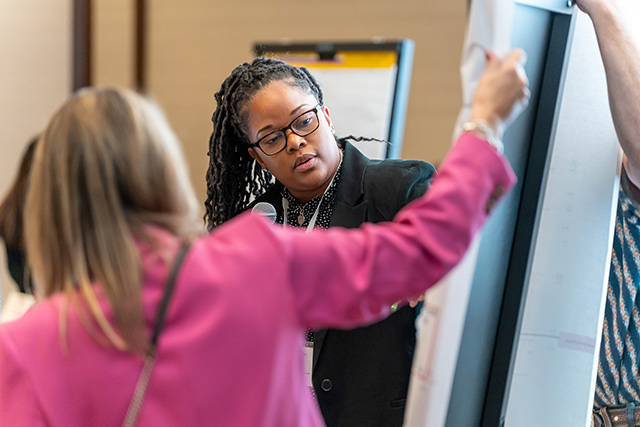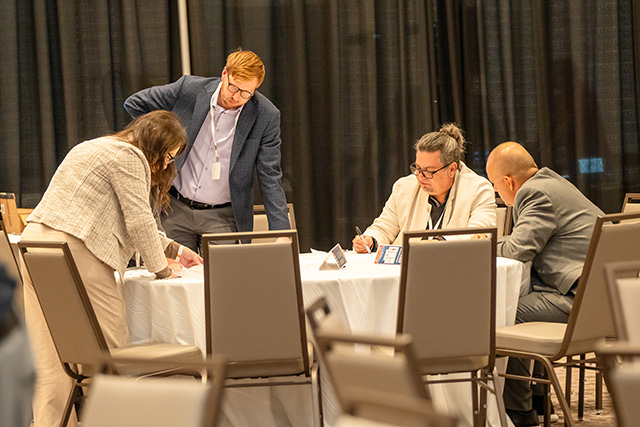When operators, consultants, manufacturers, and designers share the same room for three days, something remarkable happens: perspectives shift, insights deepen, and the whole picture comes into focus.
"This was my opportunity to come and talk foodservice design. The dialogue has been such a full circle moment," reflects Loreal Williams, Program Director at MD Anderson Cancer Center in Houston. "You realize all the thoughtfulness that goes into these things that I never considered before."
 Loreal Williams makes a presentation at FEED Workshop 2025.
Loreal Williams makes a presentation at FEED Workshop 2025.
Set for February 15-18, 2026, at the Emeline Hotel in Charleston, SC, the Foodservice Essentials for Effective Design (FEED) Workshop creates this rare convergence: operators, consultants, manufacturers, and designers together for three intensive days where perspectives merge, knowledge flows in every direction, and participants leave transformed through interactive sessions and hands-on learning.
The curriculum spans pre-design planning through project completion. Distinguished FCSI mentors share real-world insights while manufacturer partners provide technical expertise focused on project success, not sales.
"This is the top of the top," shares Raul Pineiro, Design and Engineering at Atlantic Coast Restaurant & Mechanical Services. "Their view of a project is so different from ours. The pre-design phase, a phase I don't think much about, they step back and do so much work behind the scenes to get to proper concept, proper design, proper flow."
"FEED represents the complete circle of industry support," explains Kathleen Held, CPSM, CEO of Cini-Little International and FEED facilitator. "We're investing in the future of foodservice design."
That investment flows directly into groundbreaking programs at Western Kentucky University. FEED registration fees support a certificate program for students pursuing four-year degrees, allowing them to add specialized foodservice design expertise. FEED also supports a professional certificate for industry professionals enhancing their knowledge. These educational pathways, combined with FEED-funded scholarships, create opportunities for talented individuals to enter and advance in foodservice design.
"If you want insight into every facet of the building process, you'll get it," notes Brendan Evje, consultant with Envision Strategies. "You're hearing from architects, consultants, manufacturers, fabricators…every angle. One major thing I learned: project goals are presented at the beginning but also kept up throughout. That gets lost when you're moving fast. It makes you a better communicator and helps you work more smoothly."
 Brendan Evje (standing, left) and Raul Pineiro work with their peers during a small group session at FEED Workshop 2025
Brendan Evje (standing, left) and Raul Pineiro work with their peers during a small group session at FEED Workshop 2025
The FCSI Educational Foundation is building a stronger future for foodservice design through these interconnected programs: the comprehensive FEED Workshop, WKU educational pathways, and abbreviated FEED sessions. Leading manufacturers support this vision through sponsorships, demonstrating commitment to industry advancement over product promotion.
FEED is an invaluable workshop. It's also an investment in our industry's future, creating pathways from today's projects to tomorrow's professionals.



